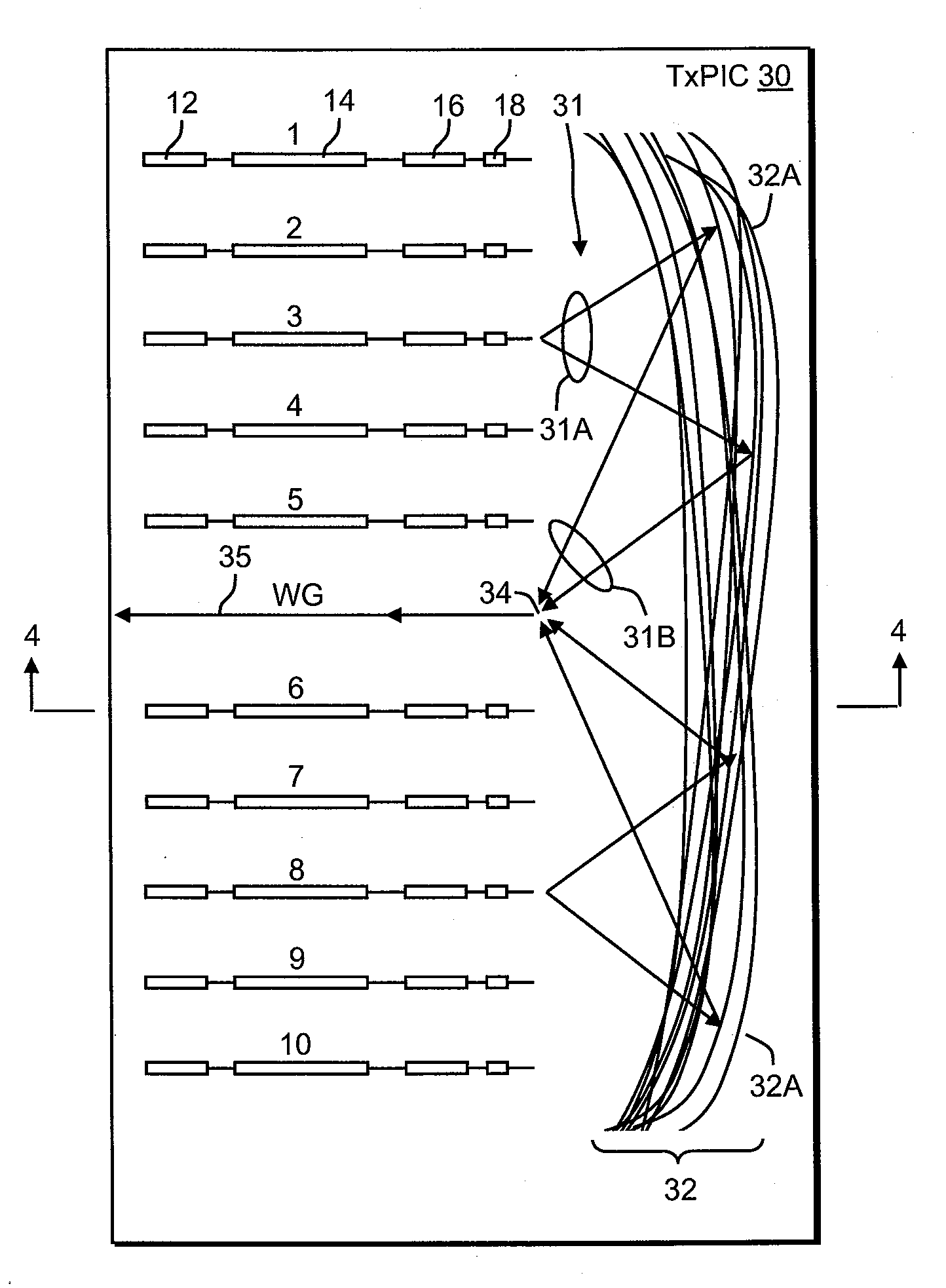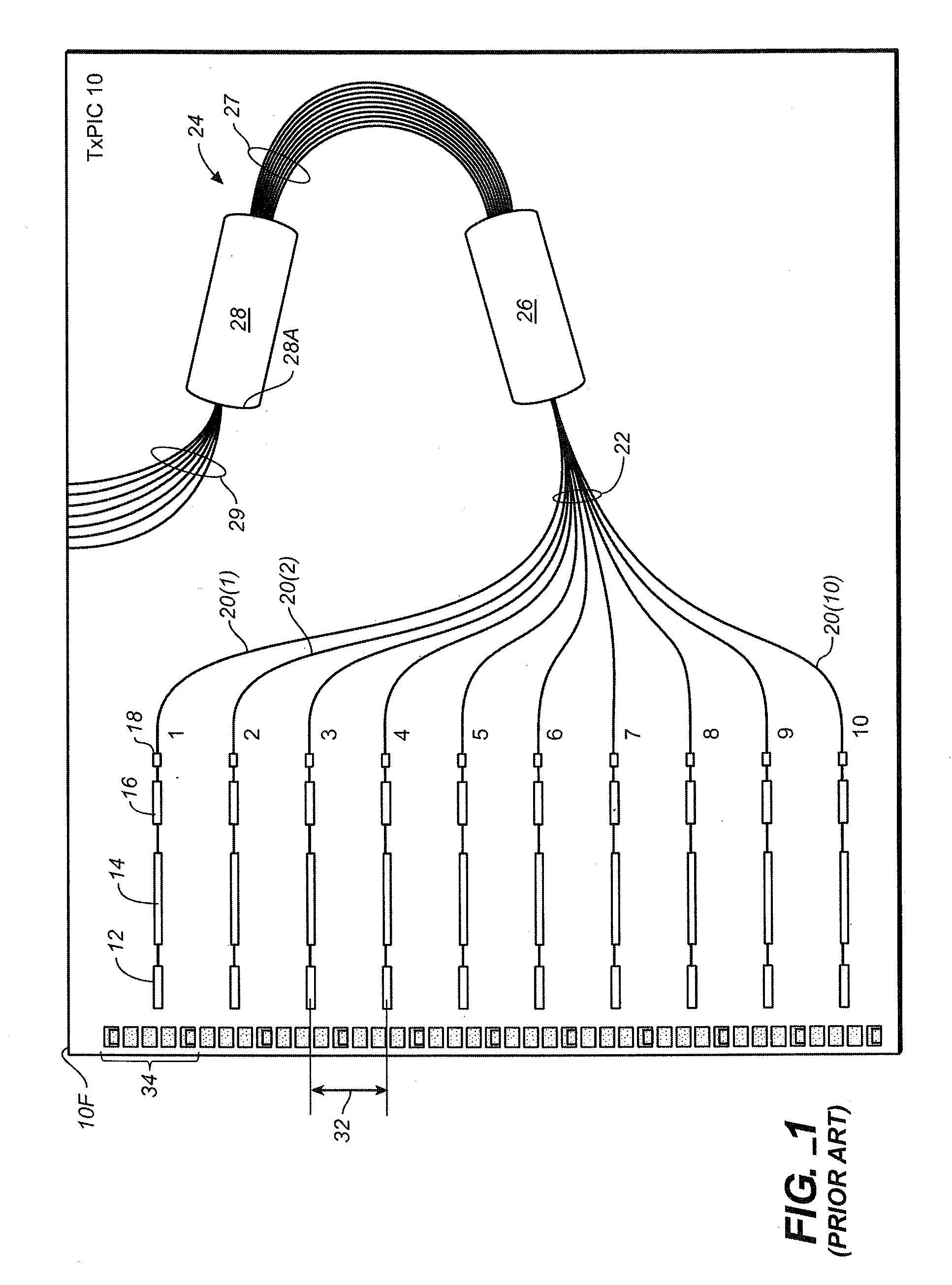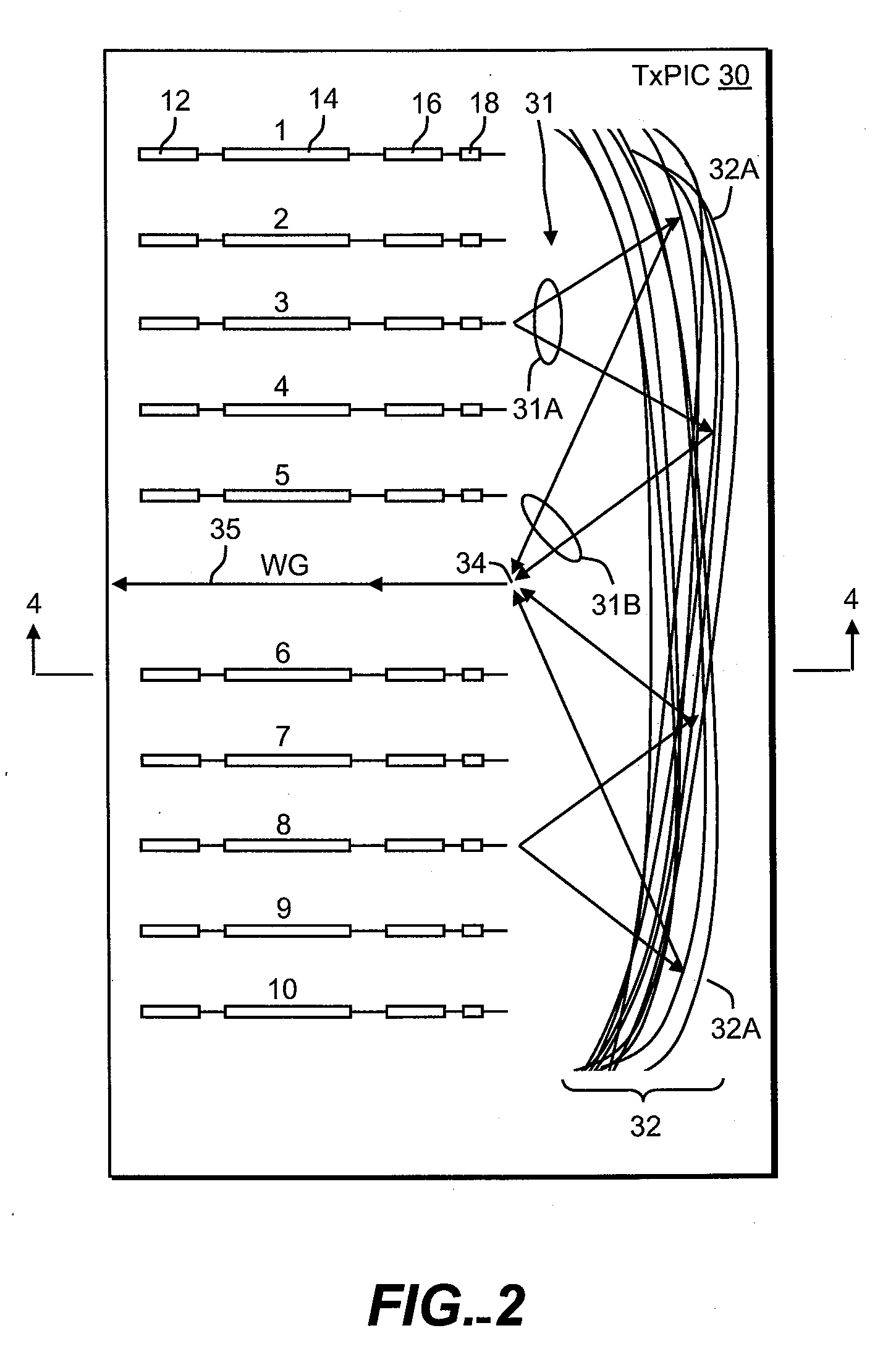Receiver photonic integrated circuit (RXPIC) chip utilizing compact wavelength selective decombiners
a photonic integrated circuit and wavelength selective technology, applied in multiplex communication, instruments, optical elements, etc., can solve the problems of unscalable henry devices, unyielding device size, and unsatisfactory device siz
- Summary
- Abstract
- Description
- Claims
- Application Information
AI Technical Summary
Benefits of technology
Problems solved by technology
Method used
Image
Examples
Embodiment Construction
[0026]Reference is now made to the monolithic transmitter photonic integrated circuit (TxPIC) chip illustrated in FIG. 1. TxPIC chip 10 may be an InP-based chip, the structural details of which are disclosed in U.S. patent applications, Ser. Nos. 10 / 267,331 and 10 / 267,346, supra. As shown in FIG. 1, monolithic TxPIC chip 10 comprises groups of integrated and optically coupled active and passive components including an integrated array of laser sources 14, such as DFB semiconductor lasers or DBR semiconductor lasers. Each laser source 14 operates at a different wavelength, λ1-λN, from one another where the group of wavelengths provides a wavelength grid approximating a standardized wavelength grid, such as the ITU wavelength grid. The laser source wavelength grid is provided to have, as best as possible, a uniform or periodic channel wavelength pitch as well as a uniform channel width and with signal channel spacing set to, for example, 25 GHz, 50 GHz, 100 GHz or 200 GHz.
[0027]At the...
PUM
 Login to View More
Login to View More Abstract
Description
Claims
Application Information
 Login to View More
Login to View More - R&D
- Intellectual Property
- Life Sciences
- Materials
- Tech Scout
- Unparalleled Data Quality
- Higher Quality Content
- 60% Fewer Hallucinations
Browse by: Latest US Patents, China's latest patents, Technical Efficacy Thesaurus, Application Domain, Technology Topic, Popular Technical Reports.
© 2025 PatSnap. All rights reserved.Legal|Privacy policy|Modern Slavery Act Transparency Statement|Sitemap|About US| Contact US: help@patsnap.com



